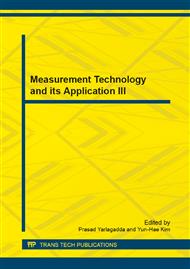p.1593
p.1597
p.1601
p.1608
p.1612
p.1616
p.1621
p.1625
p.1629
System of Intelligent Library Retrieval Based on Data Mining
Abstract:
Digital Library Retrieval involves the mathematical model of information retrieval algorithms, it is very important to design an algorithm to make the best books to extract the required information to involve the association rules and classification method for predicting the reader from the database and potentially fast and accurate information use problems. In this paper, the intelligent retrieval of books were analyzed using data mining algorithms can be studied books intelligent retrieval application, until practical algorithm to solve the retrieval model first developed fit the requirements and design a library information library books to achieve intelligent retrieval system.
Info:
Periodical:
Pages:
1612-1615
Citation:
Online since:
June 2014
Authors:
Keywords:
Price:
Сopyright:
© 2014 Trans Tech Publications Ltd. All Rights Reserved
Share:
Citation:


